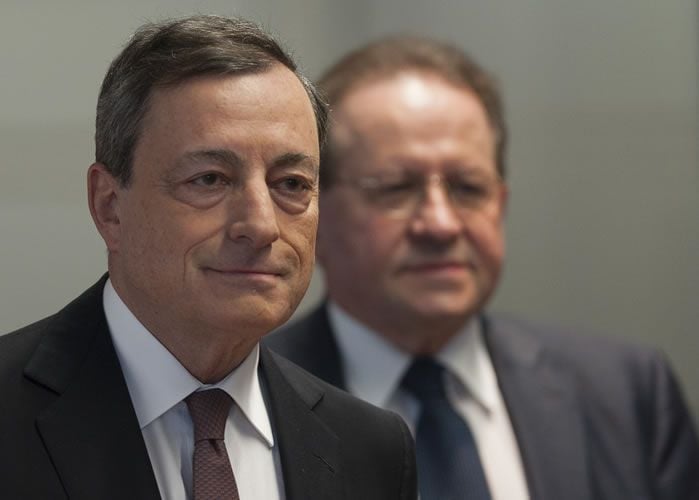Euro Outlook now Rests with ECB Tapering Announcement

The Euro will most likely start to take instruction from the European Central Bank now political risks associated with the French presidential election have faded.
Favourite Emmanuel Macron has won the first round with the vote tally suggesting the prospect of a Marine Le Pen victory in the second round appears remote.
The Euro exchange rate complex has been seen rising strongly on the outcome as traders withdraw insurance against a Le Pen win.
Traders had placed hedging contracts to protect against a major Euro fall in the event of Le Pen doing well. Withdrawing these hedges requires the buying back of Euros, hence the strength we have seen over recent hours.
But what of the outlook?
We are told that market focus is now likely to centre on the European Central Bank (ECB) and whether or not they are to announce the withdrawal of the strong support they have lent the economy over recent years.
"Assumptions of a victory for Macron should favour a reversal of OAT-Bund spreads back towards 50bps. We can also expect a boost for the single currency which remains incredibly undervalued. A reduction in political risk will allow investors to focus on the fundamentals which remain increasingly supportive ahead of the ECB this Thursday," says Jeremy Stretch, analyst with CIBC Markets.
The ECB has pumped billions of Euros into the Eurozone economy via its asset purchase programme. The programme has increased the supply of Euros which in turn pushes the value of the Euro lower.
Removing the stimulus is therefore a positive for the single currency.
“For the EUR, however, we had felt that there wasn’t a particularly large risk premium in the EUR last week, but market relief over the French vote should see the market’s attention squarely turn to ECB policy. We have a meeting this week, but assuming that Macron does secure the presidency, speculation will increase of a significant tapering announcement to be made at the June 8th ECB meeting,” says Chris Turner, Global Head of Strategy at the Global Markets Research division of ING Bank N.V in London.
If the ECB confirms they are happy with the trajectory of both economic growth and inflation in the Eurozone at the Thursday meeting the Euro might extend gains.
If positive comments on the economy are followed up by any hint that the ECB will consider withdrawing stimulus earlier than markets are expecting, this will be a very strong signal for Euro buyers.
The current programme is due to end in late 2017.
In December 2017 the ECB announced they would extend the lifetime of the asset purchase programme for another nine months but they also announced they would cut the value of bond purchases from €80bn to €60bn.
The move was opposed by the head of Germany’s Bundesbank Jens Weidmann suggesting that the bar to any further extensions in 2017 already remains high.
Too Early for a Taper Call
So what are the chances of the ECB sprining a Euro-positive surprise on markets this week?
"We do not expect any hard decision or communication surprise this week. The policy debate could get fierce from June," says Giles Moec, Europe Economist with Bank of America Merrill Lynch Global Research.
Moec thinks that in the face of a still subdued inflation outlook, prudence will prevail and that the ECB will opt for small changes to forward guidance in June, a very slow pace of tapering in 2018 and no policy rate hike before well into next year, if at all.
"Still, the hawks - and some centrists - in the Governing Council appear to be clearly tired of extraordinary measures, so that the market could start pricing a more aggressive stance, (over)reacting to hawkish noises, in the second half of this year," says Moec in a client briefing dated April 24.
Moec suggests markets might be a bit too hawkish on the ECB which suggests the Euro might be higher than it should be.
Downside risks in the near-term are therefore evident.
"We also continue to believe that core inflation will disappoint the ECB. That's what motivates our belief in a very, very slow and considered exit," says Moec.





